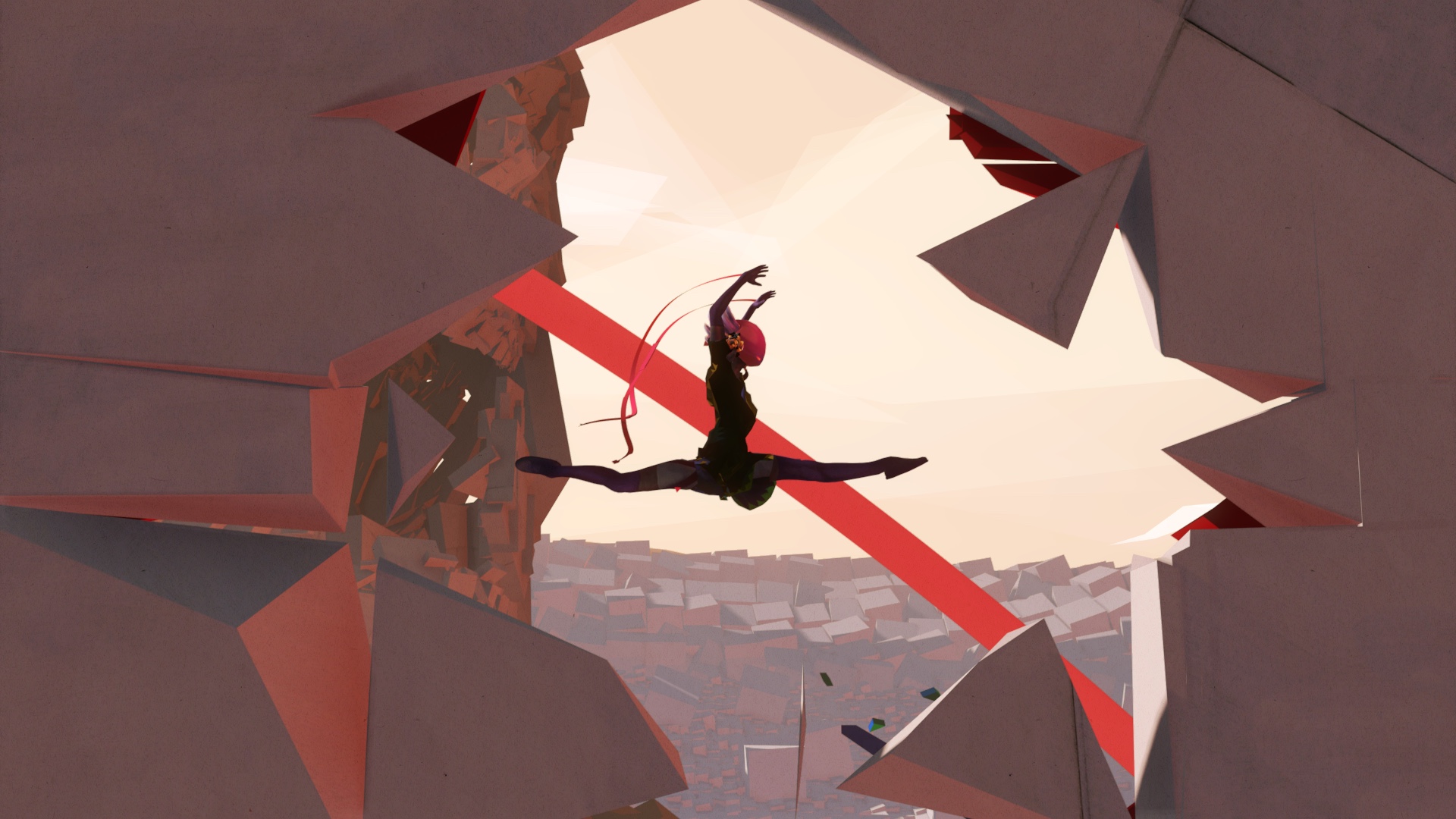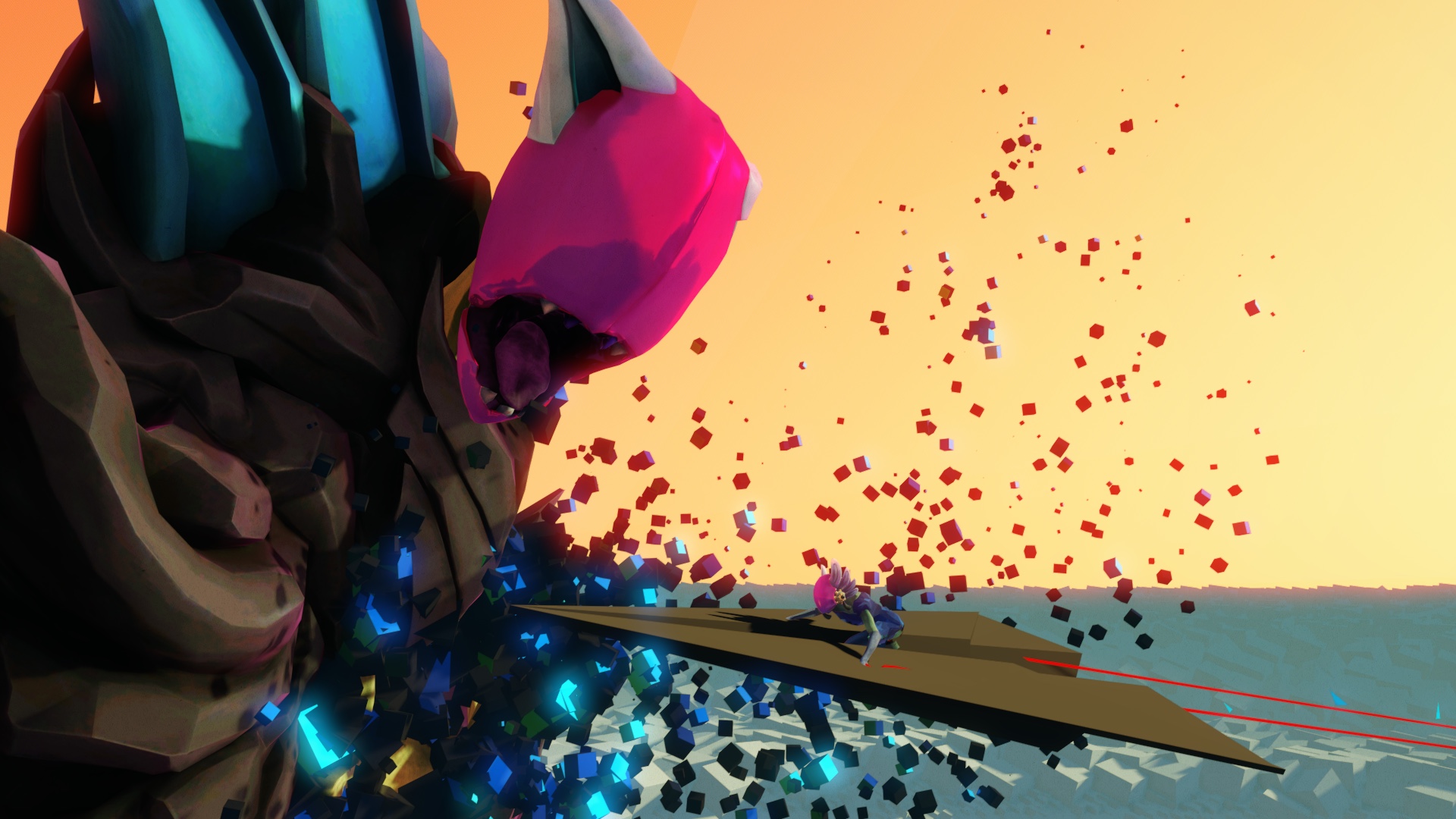Designers who style their game worlds as visual metaphors for their stories are increasingly a thing. You see it in the gravity-defiant favela-scapes of a game like Vander Caballero’s Papo & Yo. Or the ghost white void on the verge of becoming a chiaroscuro revelation in Giant Sparrow’s The Unfinished Swan. Or the temporal bricolage of the deceptively retro stages in Jonathan Blow’s Braid.
Add Plastic Studios’ Bound to that dossier of the graphically idiosyncratic. It’s a topsy-turvy 3D platformer for PlayStation 4, out August 16, that at points had me thinking of Michael Gondry’s Eternal Sunshine of the Spotless Mind. Partly because of its Jon Brion-ish piano tunes, partly because of the way its otherwhere levels feel so relentlessly untrustworthy and collapsible—though in the end, Bound concerns a very different sort of decoupling.
To say more would spoil the game, so I’ll focus on what you do, which involves navigating unstable 3D space. Bound offers two very different worlds to work through: one I’m not supposed to talk about and so will only reference for sake of contrast by noting it involves a picturesque beach, the other—where you spend most of your time—a roiling landscape of crazed geometric primitives that judder and skitter as if being shaken in a tumbler.
Literally nothing is still in Plastic’s procedurally protean, gorgeously painted sweeps. Terrain composed of thousands of cubes ripples and bobs like a pit of moshing concertgoers. Countless polyhedral objects float aimlessly, as if after a time-frozen explosion. Every footfall you make disturbs the fabric of Bound‘s unreality, disrupting floors, walls and ceilings that recoil as you pass. It’s like what Lewis Carroll and an oscilloscope might do if given carte blanche to Minecraft.

In this elliptic fantasy world, you play as a girl who must dance her way through a mystery. Tap a button and she’ll leap from the balls of her feet with arms outstretched and wing-like. Tap another and she’ll slowly raise a sylphlike leg to the sky, tracing a precise arc before pirouetting perfectly. You never use these moves for violence, and you never actually fight anything. They’re instead tantamount to invoking a forcefield: As geometric shapes lash out to slow or snare you, dancing makes you invulnerable and limbers you to move.
All of this makes Bound a beautiful game to watch, but not a very interesting one to play. In the game’s half-dozen areas, you steer the girl forward, holding the dance buttons to fend off hazards and occasionally leap between platforms without really trying. There’s no puzzle solving or sleuthing for hidden paths, just your forward motion framed by all that volatile geometry. Bound is clearly an experience that expects you to derive pleasure from the spectacle of its Wonderland-like environs alone.

And yet Bound‘s vistas seem metaphorically disconnected from its backstory, which feels crudely tacked on—like a clever tech demo with gravitas shoehorned in. The pitch “a child dances to banish memory demons” sounds powerful, but the connection points are missing. There’s no sense of coming to grips with, much less banishing, anything. It’s reflection as mere passage through a pretty abstraction, and dancing as analogous to holding your fingers in your ears and singing “la la la” to the storm. When the narrative crystalized at the end, all I could muster was a sense of melancholy disappointment.
But it’s also another of these games about which it’s easy to say things like “It resembles nothing else you’ve played.” For players willing to see past Bound‘s shambolic narrative and effortless gameplay, that may be enough.
2.5 out of 5
Reviewed on PlayStation 4
More Must-Reads from TIME
- Caitlin Clark Is TIME's 2024 Athlete of the Year
- Where Trump 2.0 Will Differ From 1.0
- Is Intermittent Fasting Good or Bad for You?
- The 100 Must-Read Books of 2024
- Column: If Optimism Feels Ridiculous Now, Try Hope
- The Future of Climate Action Is Trade Policy
- FX’s Say Nothing Is the Must-Watch Political Thriller of 2024
- Merle Bombardieri Is Helping People Make the Baby Decision
Write to Matt Peckham at matt.peckham@time.com